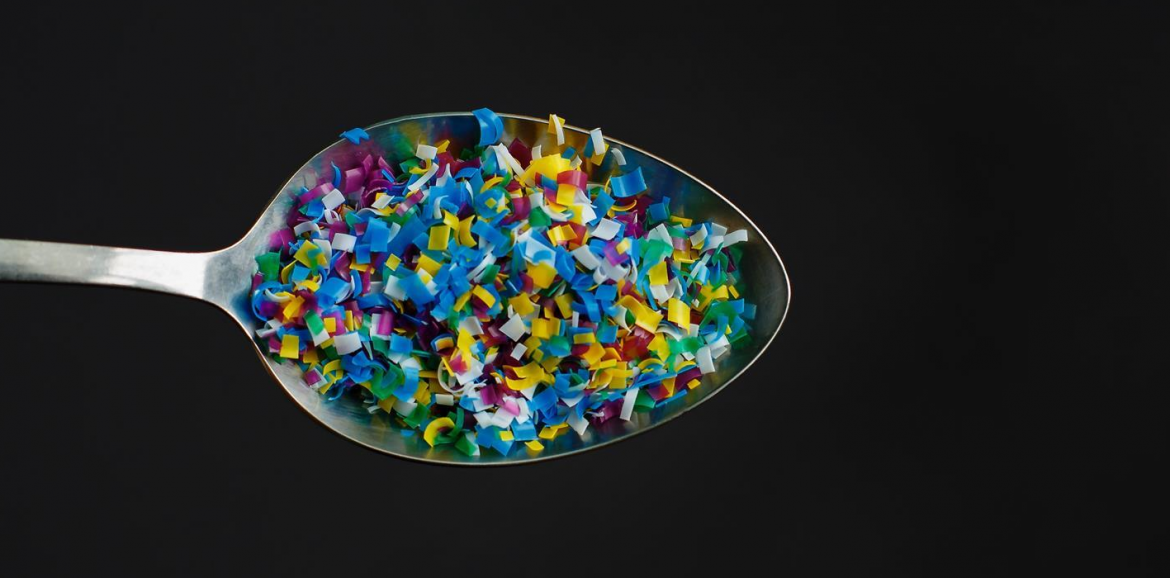Summary: Microplastics are pieces of plastic debris under 5 millimetres in length and are a result of the disposal and breakdown of consumer products and industrial waste. How free is your food from microplastic?
Reading Time: 4 minutes
Plastics saturate every part of the food chain. They’re used to wrap our vegetables and meats and are even fed to animals. How free is your food from microplastics and should you care?
What Is Microplastics?
Microplastics are pieces of plastic debris under 5 millimetres in length and are a result of the disposal and breakdown of larger consumer products and industrial waste. Microplastics are also formed from plastics that break down after being exposed to natural elements, such as waves, wind, or sunlight for an extended period of time.
Nanoplastics, are a by-product of microplastics that break down further and become invisible to the naked eye.

Why Microplastics Is In Your Food
Microplastics and nanoplastics have infiltrated every aspect of our environment, they are in the water we drink, the food we eat, and in the air, we breathe.
The website Bon Appetit mentioned that “some scientists have estimated the average person might eat 5 grams of microplastics in a week—about the weight of a credit card. Another study breaks that down to up to 52,000 particles annually from various food sources.”
In 2019, researchers found that we consume thousands of these plastic particles every year, while further research published in May 2022 found the presence of microplastics in human blood.
A series of TikTok videos were posted by a farmworker in 2021 showing old grocery store food, including plastic-wrapped bread loaves, being ground up and mixed into food for pigs, who eventually became food for humans.
A 2020 study found microplastics and nanoplastics in fruit and vegetables sold by supermarkets and in fruit and vegetables sold by local stores in Sicily, Italy. Apples were the most contaminated fruit, and carrots had the highest levels of microplastics among the sampled vegetables.
To add, studies show that were also found in:
- fish and seafood
- table salt
- beer
- honey and sugar
- tap water.
Clearly, plastics saturate every part of the food chain. They’re used to wrap our vegetables and meats, and they’re even fed to animals.
Is Microplastics harmful to humans?
Yes, and here is why.
A report by the UK’s Environment Agency, which was subsequently revealed by the environmental campaign group Greenpeace, found that sewage waste destined for English farmland was contaminated with pollutants including dioxins and polycyclic aromatic hydrocarbons at “levels that may present a risk to human health”.
Plastic pollution poses a serious threat to humanity, as chemicals in plastic products have been linked to dropping male fertility rates, cancer and other serious health conditions.
Studies show that nanoplastics are probably much more dangerous for living organisms than microplastics because they are more abundant and reactive. To quote “Nanoplastics Destroy Cell Membrane Structure Leading to Cell Death“.
What Can You Do About It?
Switzerland prohibited the use of sewage sludge as fertiliser in 2003 because it “comprises a whole range of harmful substances and pathogenic organisms produced by industry and private households”. Other countries are starting to follow suit and ban the practice. However, that does not stop the toxins and pollutants that are already in our drinking water, seafood and salt.
This does not mean that we all have to move to Switzerland. Humans consuming plastics is fairly unavoidable at this point according to all the evidence so far presented by world-leading research organisations.
But there are things that you can start doing today to minimise the amount of plastics you ingest. Such as:
- Filter the water you drink using a product that can filter out microplastics such as a Berkey Water Filter
- Enhance your filtered water with Hydrogen
- Buy food from groceries that do not use plastic packaging – such as organic food farms
- Buy your own reusable water bottle and stop buying bottled water (dependent on where you live)
- Buy a Go Berkey Sports Bottle 1L, which has multiple benefits
Little by little buy products that don’t use plastics, because the less plastics you use, the bigger positive impact it will have on your life.
Knowledge Is Power
I hope that this article helps you to understand some holistic choices you can make to eat a healthier diet.
Book a 30-minute FREE appointment with me today so I can help you understand how you can reach your potential and be a better you.
Stay healthy!

